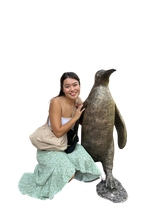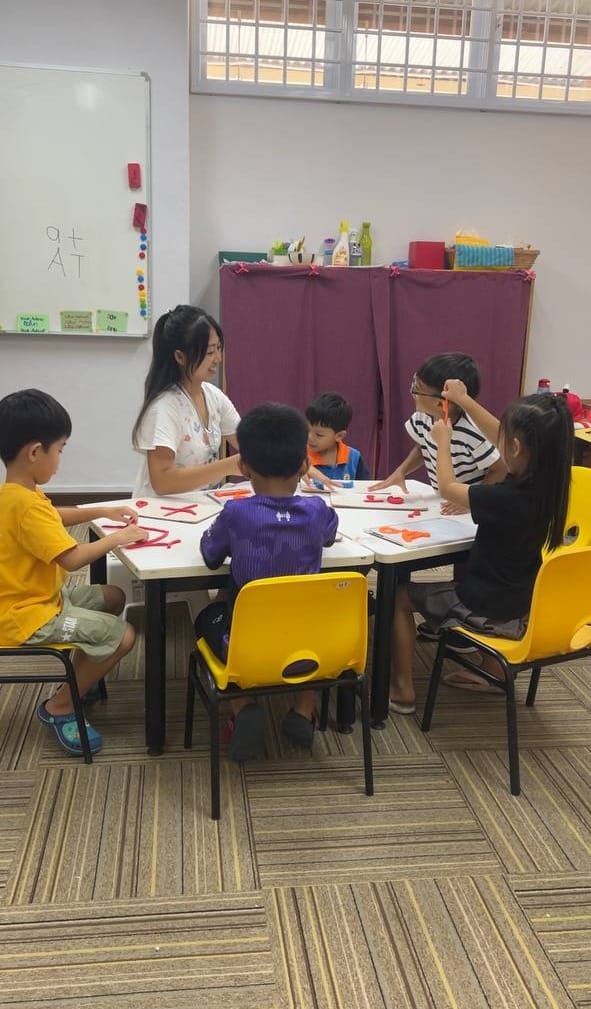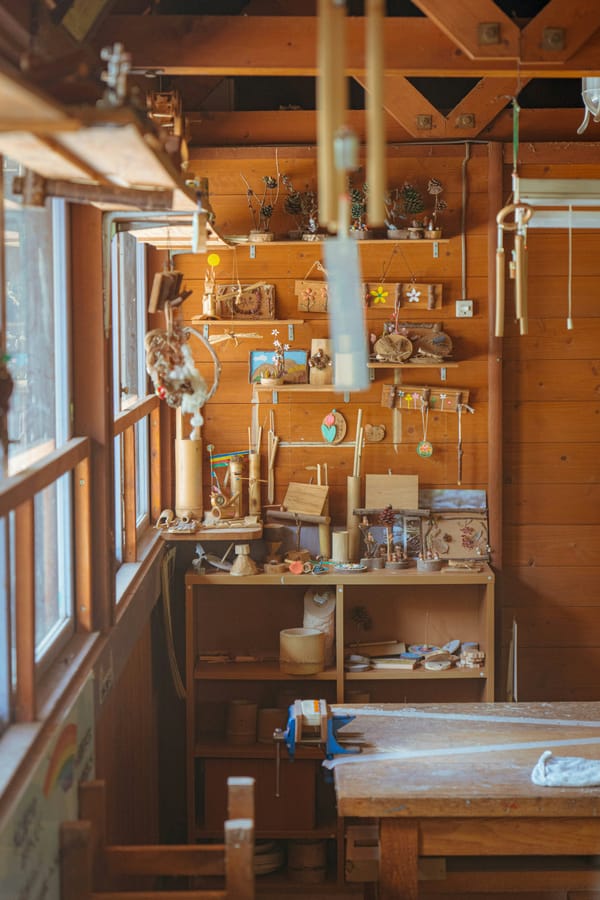Samantha's Reflective Journey
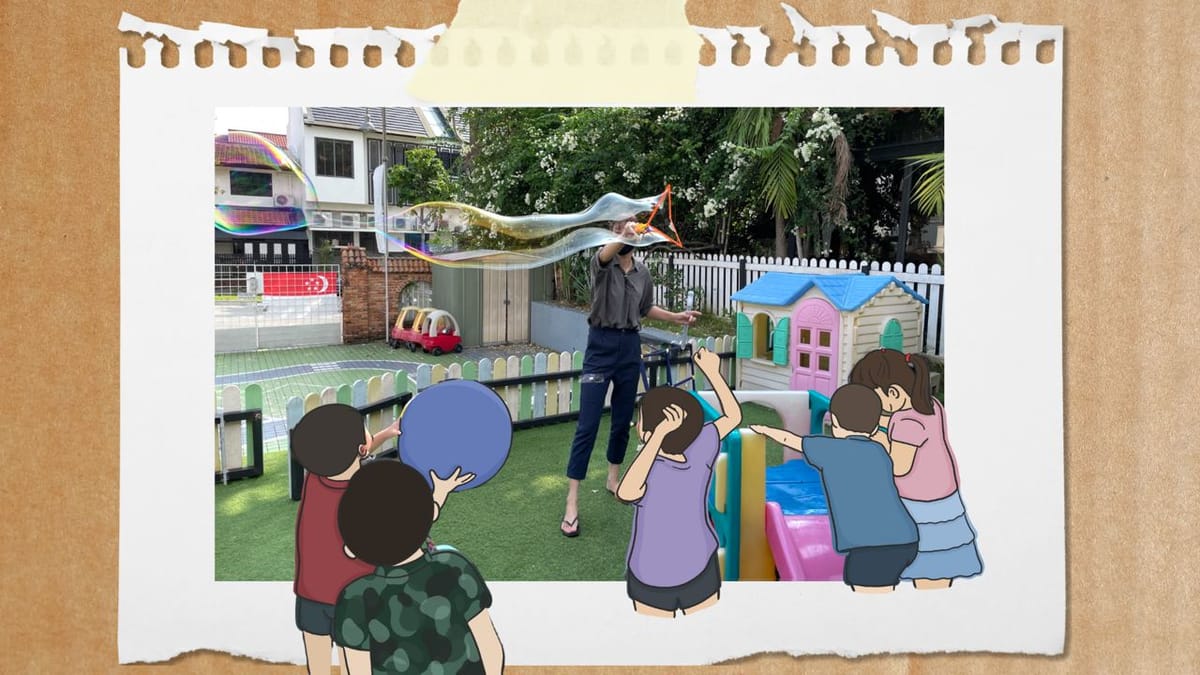
Many of us would remember our studies at SUSS placing a heavy emphasis on reflection during our practicums and final-year teaching practice. There were reflections in action, on action, and for action—all of them contributing to our growth as practitioners.
While I always knew the the importance of reflection, this was in no comparison to the way Samantha Tan, Cohort 1 graduate, gushed about it. During my conversation with her one night, I found myself humbled by her passion and commitment to reflective practices.
"What I've learned, what I've gained really from teaching practice at SUSS, was mostly how to reflect on what we have worked on, then making changes from there," Sam explained as she recalled her experiences as a student and teacher. "I translated that entirely [into my teaching]. I made sure that I stayed reflective."
It was something she brought up throughout our conversation, emphasising the importance it had in shaping her beliefs and personal philosophy as a teacher, as well as her decision to move forward in her professional and educational journey.
Pursuing a Master's Degree
Sam is currently a student at Portland State University (PSU), pursuing her Masters in Early Childhood: Inclusive Education with a specialization in Constructivism. If PSU sounds familiar, it's because our very own professors, Dr Christine Chaillé (who has since retired) and Dr Sally Guyon, are based there!
"I think I was thinking about how I can better myself on an early childhood front. If I were to work with children again, what else do I want to equip myself with?... I wanted to know more about constructivism even after graduation," Sam recalled.
Upon graduation, Sam worked at a start-up preschool. "It required me to be reflective because I was the one kind of helming the project or the curriculum. The other teachers who joined us would follow suit. If I didn't set a good example, then they wouldn't see the value in being reflective as well," Sam explained. "On top of that, because it was a startup preschool, it was almost a necessity that I stay reflective so that I could make learning visible for parents... I was always trying and improving what I've already done so I don't stay status quo."
Her experience at this preschool opened up opportunities for her to see the beauty of a constructivist approach to education and the importance of reflective practice, leading to her choice to pursue a Masters program.
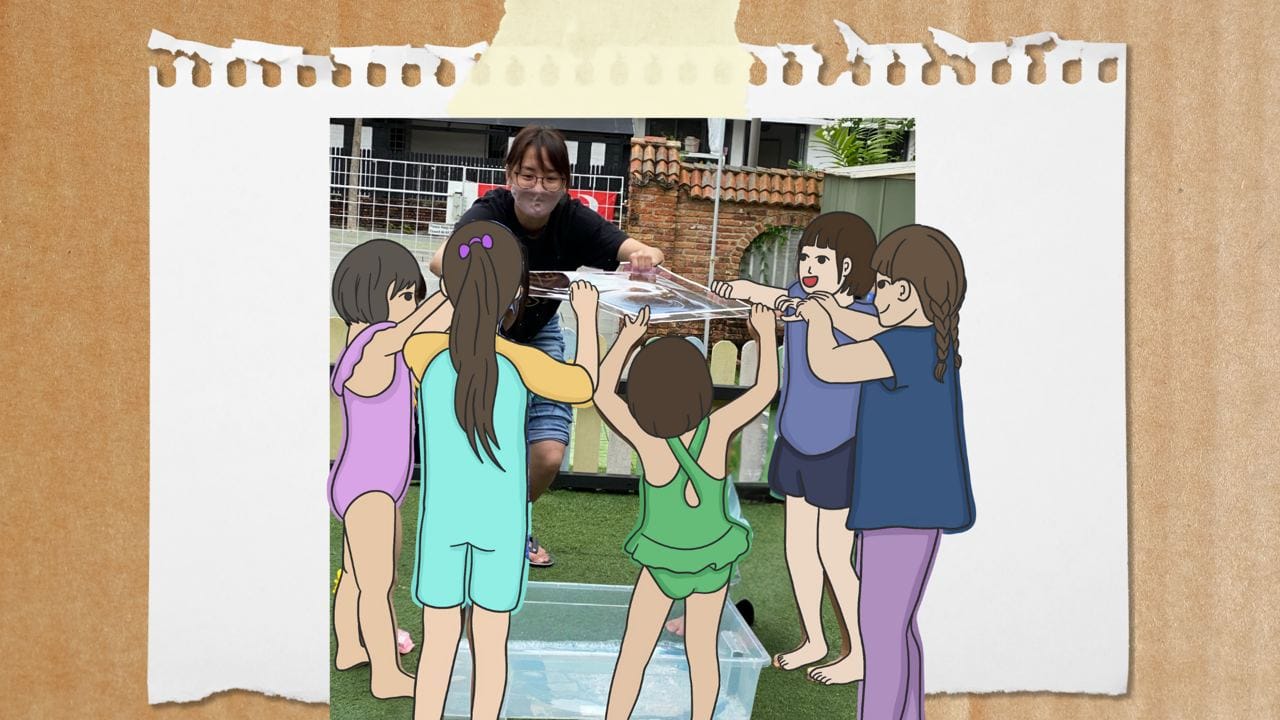
Though Sam experienced hesitation with the PSU program being entirely online, she does not regret going for it in the slightest. "I'm three semesters in, have done about five courses in total... Really, really loving the entire experience," she smiled. "The interesting thing about Portland State is that the delivery itself is also constructivist. So, they truly value the process of learning for the graduate students. It's a lot of feedback on your own work and a lot of reflecting with your peers, their work."
The program at PSU, with its focus on pedagogical practice and constructivism, balances theory and practical application. "There are assignments that require you to be with children, so you have to do your own reflections on that. It's a lot of learning from already done practice... You can go to Reggio Emilia to just study the environment, network with teachers and learn from each other! I really appreciate that."
Learning With and From Others
However, Sam's journey with constructivist education wasn't always so straightforward. "I think sometimes being the only one who understands constructivism or who wants to practice constructivism can be very burdensome because the other teachers who join you might not necessarily believe in it or might not be able to slow down..." she pondered. "It's very hard to embrace free play. It's very hard to not have a plan and then just let children take charge, you know."
"I guess it was very difficult for me to try and do it myself, fresh out of university, and also to influence that for the new, the beginning teachers there... Some others might not be able to see value in it or might not know how to execute it. So, that was really tough."
I invited Sam to compare her work experiences to the current opportunities to interact with professors and students at PSU. "Very refreshing, very rejuvenating!" she answered without hesitation.
"With learning from people from the States or people from Malaysia, many different countries, what I learned was that the problems that teachers face in the early childhood sector is almost universal," Sam remarked.
"We all experience the same thing but you see so many like-minded people wanting to do good for children and that just pumps me up; to know that there are so many people wanting to do all these things for children. So many people thinking critically just to try and make better the early years that children are living."
"Apart from being rejuvenated and excited about things to come, I also felt a bit of that weight on my shoulders because I have this urgency that I cannot shake off," Sam noted. "Like, I want to quickly do this. I want to quickly do good for children. I want to quickly make learning visible and I think what I've been learning these days, in the recent weeks, is really to just slow down a little and enjoy the moment."
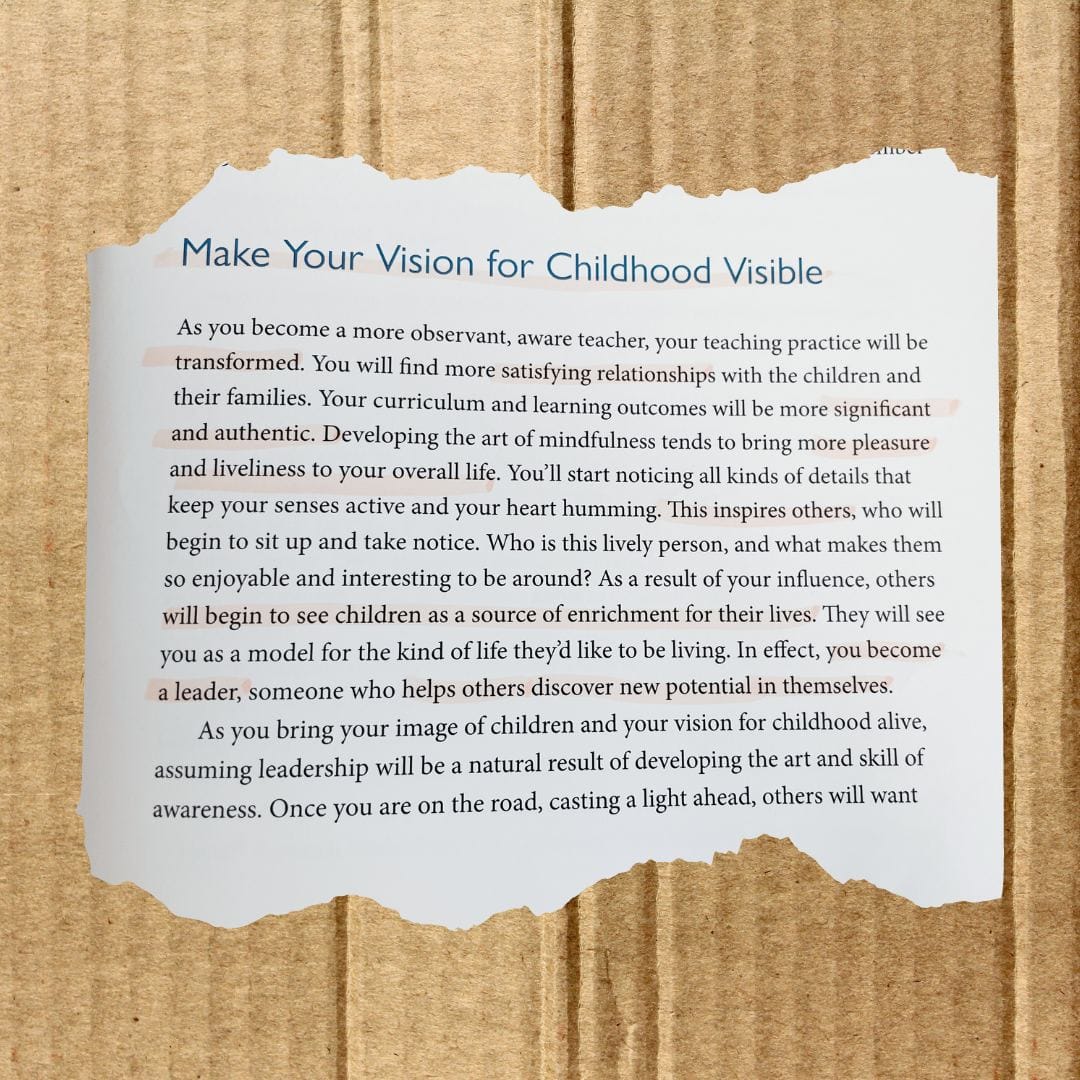
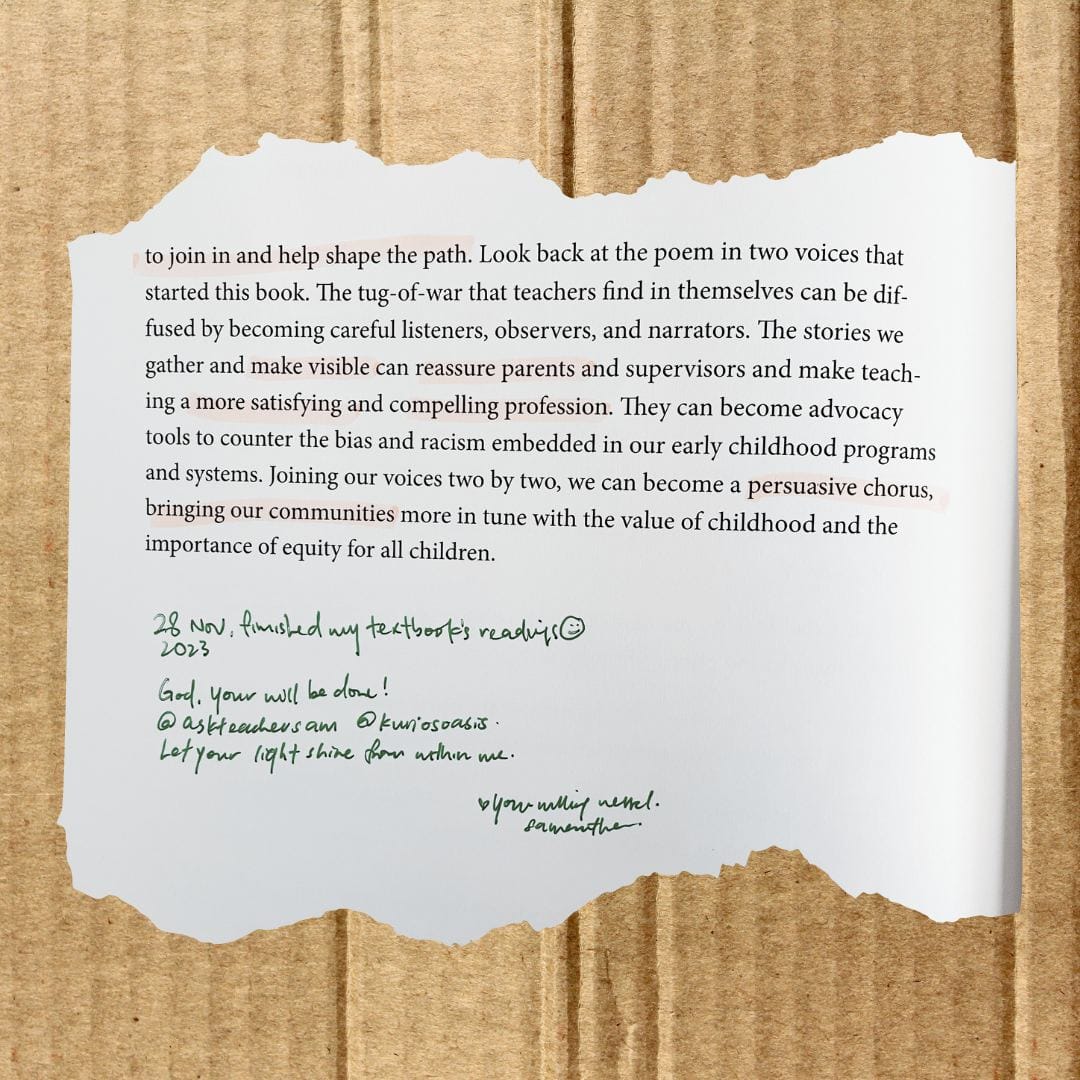
Advocacy: Using Her Voice
Sam also commented on her fellow's students passions. "I think there's a part of the students there that want to also do advocacy or even dive into policy change or just being change makers in general." This led our conversation towards her love for sharing information and ideas with others.
"The main reason why I wanted to do the master's was to know what I didn't already know. There's a whole lot of joy, learning new things because I don't know what else I don't know," Sam laughed. "I think knowing more about the early childhood industry, early childhood education and care, and what we can do as teachers will help inform my practice."
Sam's excitement to advocate for early childhood education was palpable. "I think by nature, I like to do advocacy work. I like to share what I believe in. So, I strongly believe in and I have passion in constructivism. I have passion in guidance. I really love talking about early childhood education, how fun it can be, the power of the early years," she said.
She told me the story of her first experience in a preschool, where the teacher was particularly rough on a toddlers, and she felt guilt that she didn't stand up for the child. "I still remember his name... I just thought if I could be a fantastic teacher, this might not happen to another child."
"I think that was the starting point. And then, eventually, I started to go into preschools with internship, with my own training award, like the bond as a full-time teacher. And then, there was so many things that I thought, okay, this can be improved. This can be improved. I can improve. I can improve," she explained.
That was when Sam started her Instagram account, @AskTeacherSam, back when she was a student at SUSS. "I wanted to do early childhood advocacy on Instagram with illustrations." This marked the start of Sam's journey in media, which you might recognise her from. She told me about the different auditions and competitions she participated in to gain traction for her account, building it from the ground up to where it is now.
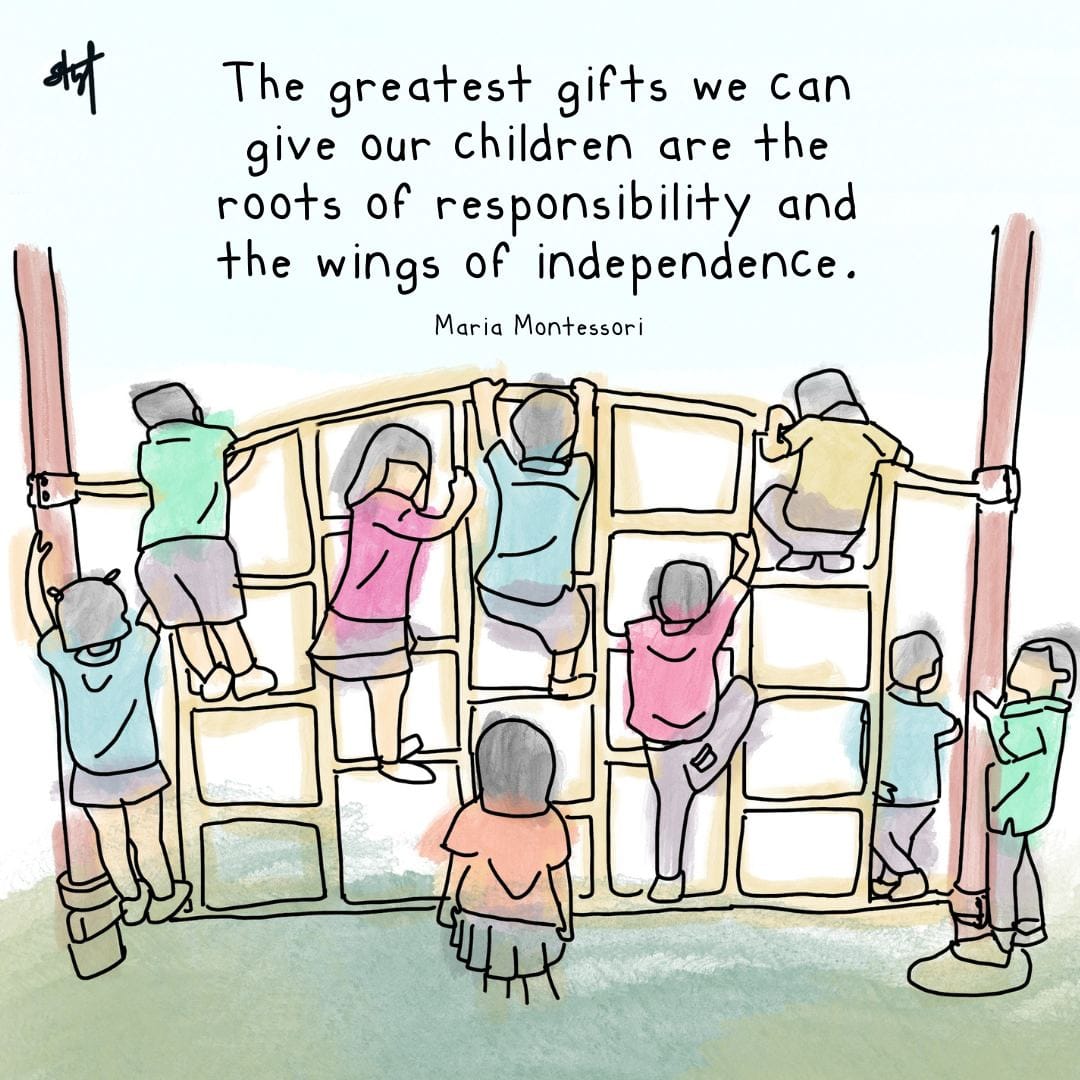
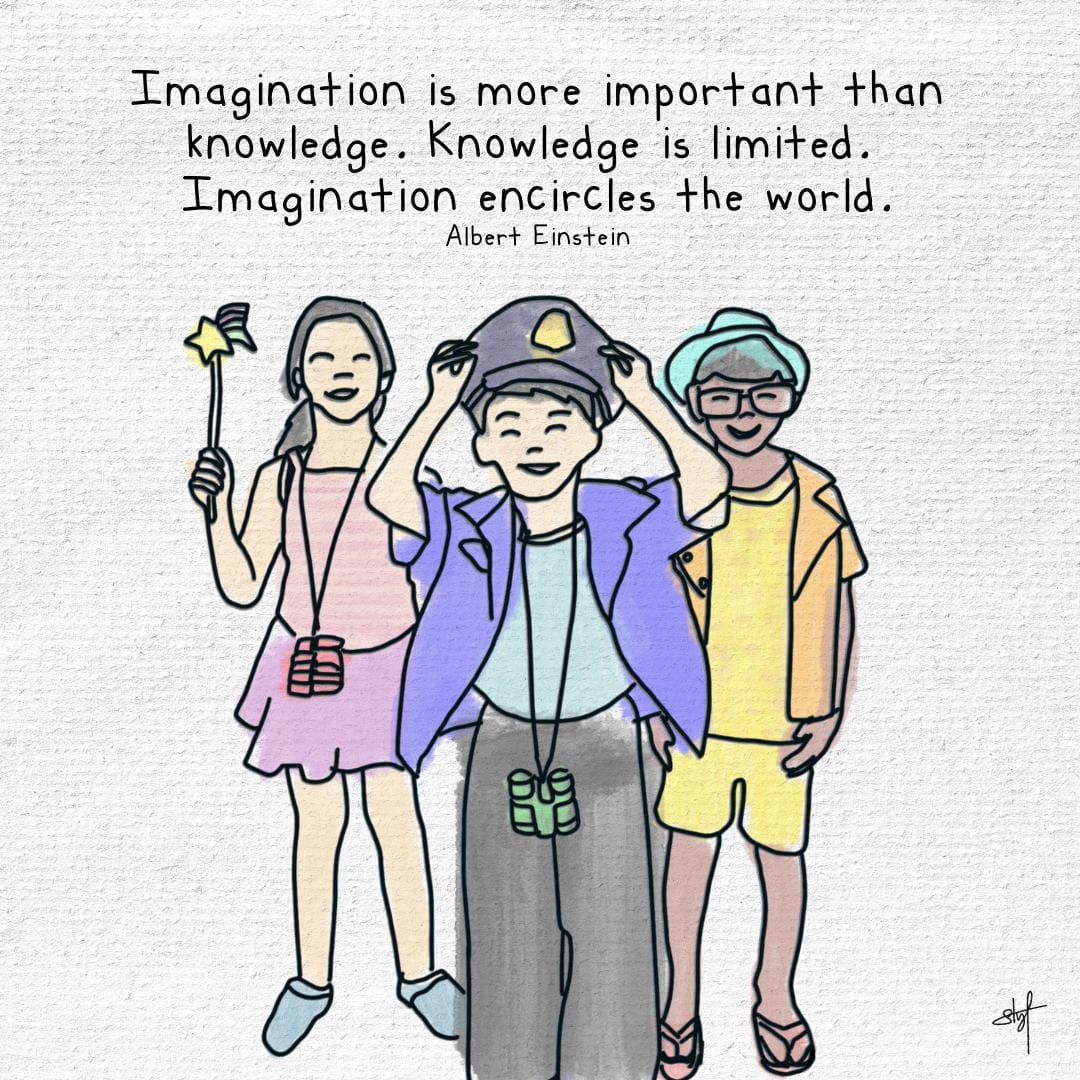
"I realised like, 'Oh, okay, I now have a voice, how can I use it?'," Sam recalled. "I paid very close attention to that because while talking to my peers and mentor, I remember reflecting on the power of my voice. One of them said, 'Don't be an empty barrel that makes loud noises. If you want to say anything, say it properly.'"
"I was very careful with what I put out. I wanted to make sure that the early childhood profession stays professional... That I don't trivialize it and I honour teachers in the field."
Combined with her new experiences from the Masters program, her reflections on using her voice have grown over the years. "Back when I first graduated from the diploma, I thought I knew it all. When I was speaking to parents or to my friends, I'm like, "There's only black or white. This is correct. And that is not correct'... Then with the [SUSS] degree, I started to realize that I don't know much."
"At the Master's level, I think I don't know anymore. It's like, the more you know, the more you don't know. I feel that that's something that I realized because there's so much you question. Now you question even the theories that inform your practice. You think about whether or not there's an absolute truth in the work that you do."
"There are so many layers to things that I find myself a little scared to speak until I am confident with my own ideologies," Sam admitted. "If people were to approach me to talk about certain things, I'm better informed of many different multiple perspectives. So I can discuss from those multiple perspectives. That's the main change for me so far. I'm not even done with the master's program, but I feel challenged already because I have to reflect very, very heavily."
Sam's reflections on how humbling it is to realise that there is so much more to learn resonated deeply with me—believing I knew everything caused my biggest stumps in personal growth.
Parting Thoughts
With her active involved in the advocacy for the field, I spoke to Sam about her aspirations for early childhood education in Singapore.
"I'm not sure what the nation will be doing, but if the nation is planning to keep early childhood education of high quality or however they define 'high quality', I hope to be a part of that change," Sam remarked. "I hope that I can also contribute to when they discuss how curriculum can be built based on what I've learned and my practice... How my own teacher research can help inform certain changes or maybe just to add another voice to helping the nation build quality early childhood education."
We also discussed some encouraging words for beginning teachers. "The truth is... I feel like beginning teachers will just have to go through it. As much as I can say, okay, do journaling, make sure you're self-aware, nothing will strengthen them more than the actual tough experiences" Sam acknowledged.
"Perhaps just prepare your mind to embrace difficult situations and to be prepared for challenges and to know that they are not the only ones facing those challenges because it's more common than we think it is"
"The more correct answer will be self-awareness. Just prioritise your mental health... You know, when we go on planes, the air stewardess will always say, during the safety briefing, when the oxygen mask comes down, you put it on yourself first, then to your child," Sam highlighted. "The reason for that is because if you don't take care of yourself, you cannot take care of anybody else. Yeah, so that's the same for us teachers, I guess, when we go into the field, to just make sure that take care of ourselves."
As for our current teachers, Sam wishes for us to keep fueling our flame for a better early education space. "I wish I had something to say, but the thing is, I feel like I'm still learning along the way... Maybe just to embrace constructivism even in your own life?" Sam considered. "It allows you the freedom to make mistakes and the freedom to learn from and then it focuses more on the process than the product... maybe just embrace learning, embrace slowing down."
"Ultimately, just remembering why you are still in early childhood education. Yeah. Because all of our why's are very different."
Sam embodies a dedication to and passion for early childhood educator, and I am fortunate to learn more about her strong commitment to constructivist teaching methods, continuous self-improvement, and advocacy for better educational practices. Her journey is marked by resilience, reflective practice, and a drive to make a significant impact in the field of early childhood education.
Circle Time wishes you all the best and we look forward to your impact on the community, Sam!
